
Wave of counterfeits
A staff member from the Chinese embassy in Ghana told the Global Times that these "Be Safe" condoms are quite a famous product in Ghana. The source of the faulty condoms is still being investigated.
"There are three possibilities in this case," he said. "The faulty products may have been faked by local Ghanaian manufacturers, or produced by the Xibei Company, or come from other manufacturers in China."
Largey admitted that the Be Safe condoms have been in Ghana for some time and they hadn't had problems with previous batches. But from the information he has received so far, the previous ones were not manufactured in China.
"But we are not saying that we are not permitting condoms from China," Largey said. "If we get condoms from China, we pick batches and we test them. If they are ok, we don't have any problem with that."
Fake medical supplies made in China are not new to Ghana. Beyond the current condom controversy, the FDA in March determined that medicines made by several Chinese pharmaceutical companies did not fulfill their function of controlling bleeding after childbirth, which could result in death.
Largey was careful to point out that Ghana does not "blame" China for faulty exports, and that there have also been problems with counterfeit products from other nations, such as India and Nigeria.
He said the FDA is strict when testing medicines imported from all countries, and was not singling China out.
However, he did admit that given the increase in fake medicine products from China, they have advised consumers to be cautious when purchasing these products.
"We have received medicine from China that's very good," he said. "But because of the more frequent issue of this problem, it looks like people are getting discouraged from Chinese products, especially medicines."
China was harshly criticized in February by Western media outlets for an alleged flood of counterfeit drugs entering Africa. China's foreign ministry responded by saying the reports were groundless rumors, pointing out that the anti-malarial medicine made in China was of high quality, and was welcomed by the public in Africa.
Reputation 'Made In China'
Chinese Web users were keen to mock the condom issue, and made jokes indicating that the Ghanaians were poking fun at Chinese men by saying the condoms were too small.
But, jokes aside, instances like these have had a real impact on China's reputation.
A report released in April from the UN Office on Drugs and Crimes gave a damning indictment of Chinese products, stating that China has become the world's workshop, producing a significant share of the world's manufactured goods, but also a large share of the counterfeits.
It said that at least two-thirds of the world's counterfeits are exported directly from China, while an unknown share may be shipped from China, then through other countries, concealing the origin.
The standard that China sets for manufacturers is rather low, resulting in lapses in some products' quality, an exporter surnamed Qiu from Zhejiang Province told the Global Times.
Qiu's company exports products to developing countries in Southeast Asia. He said that companies that produce products for overseas brands are usually of higher quality because their clients demand it.
"But in the places where I export to, compared with rivals, Chinese manufacturers do have an edge in terms of technology and quality. And that's why products made in China have a promising future in these countries," he said.


Latest development of H7N9 in China[Special]
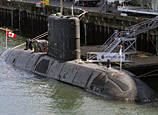
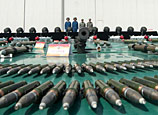
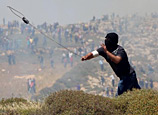

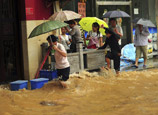


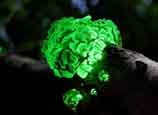

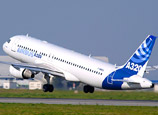






 Heavy rain affects traffic in S China
Heavy rain affects traffic in S China


![]()
